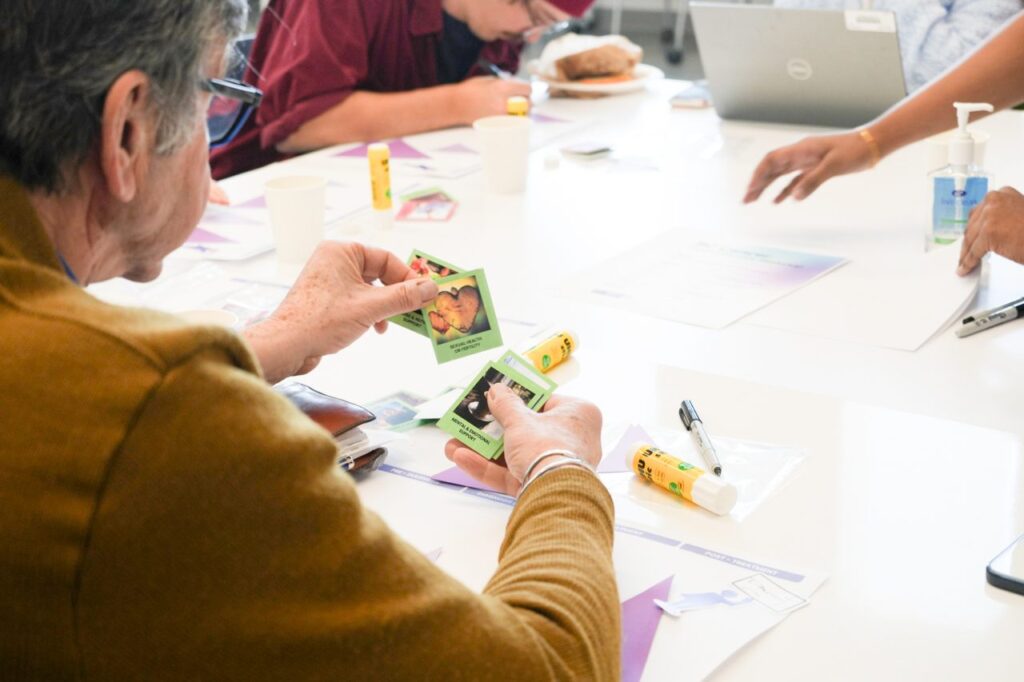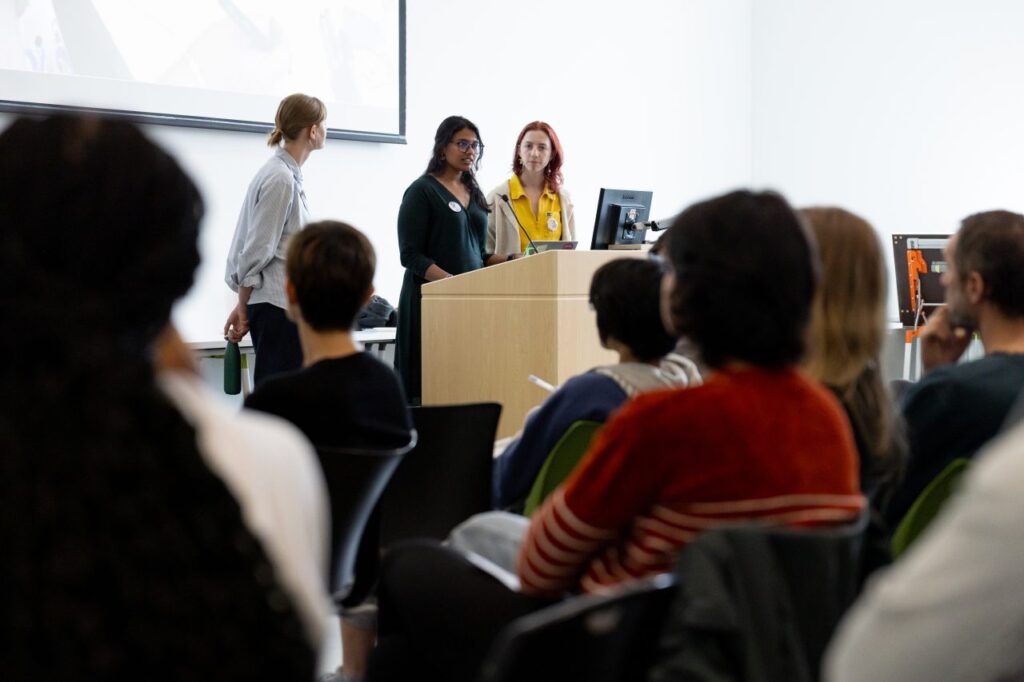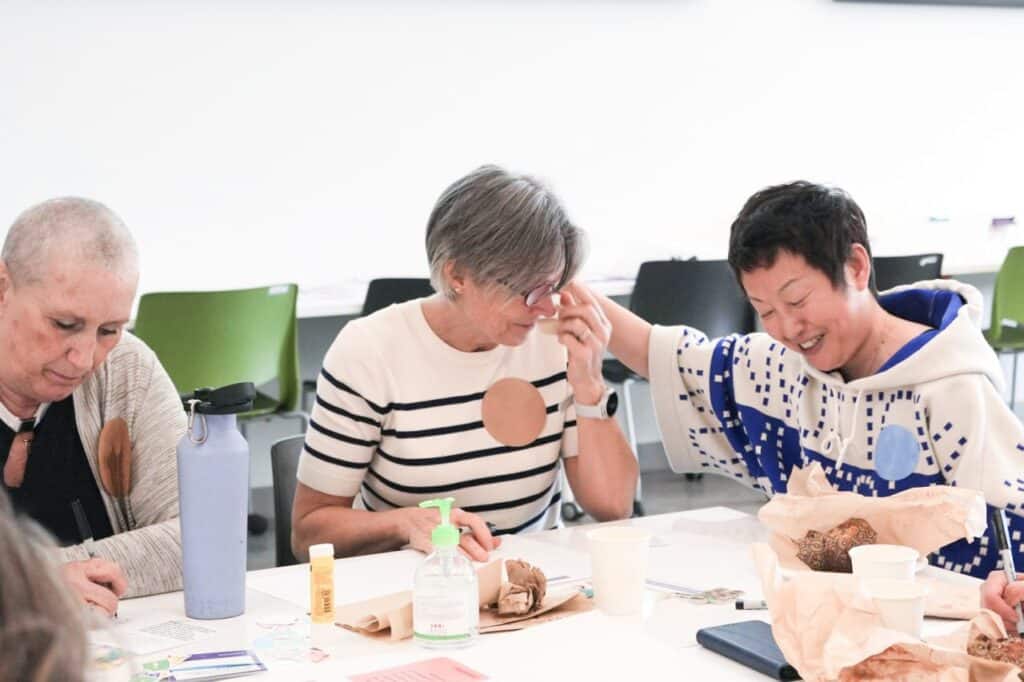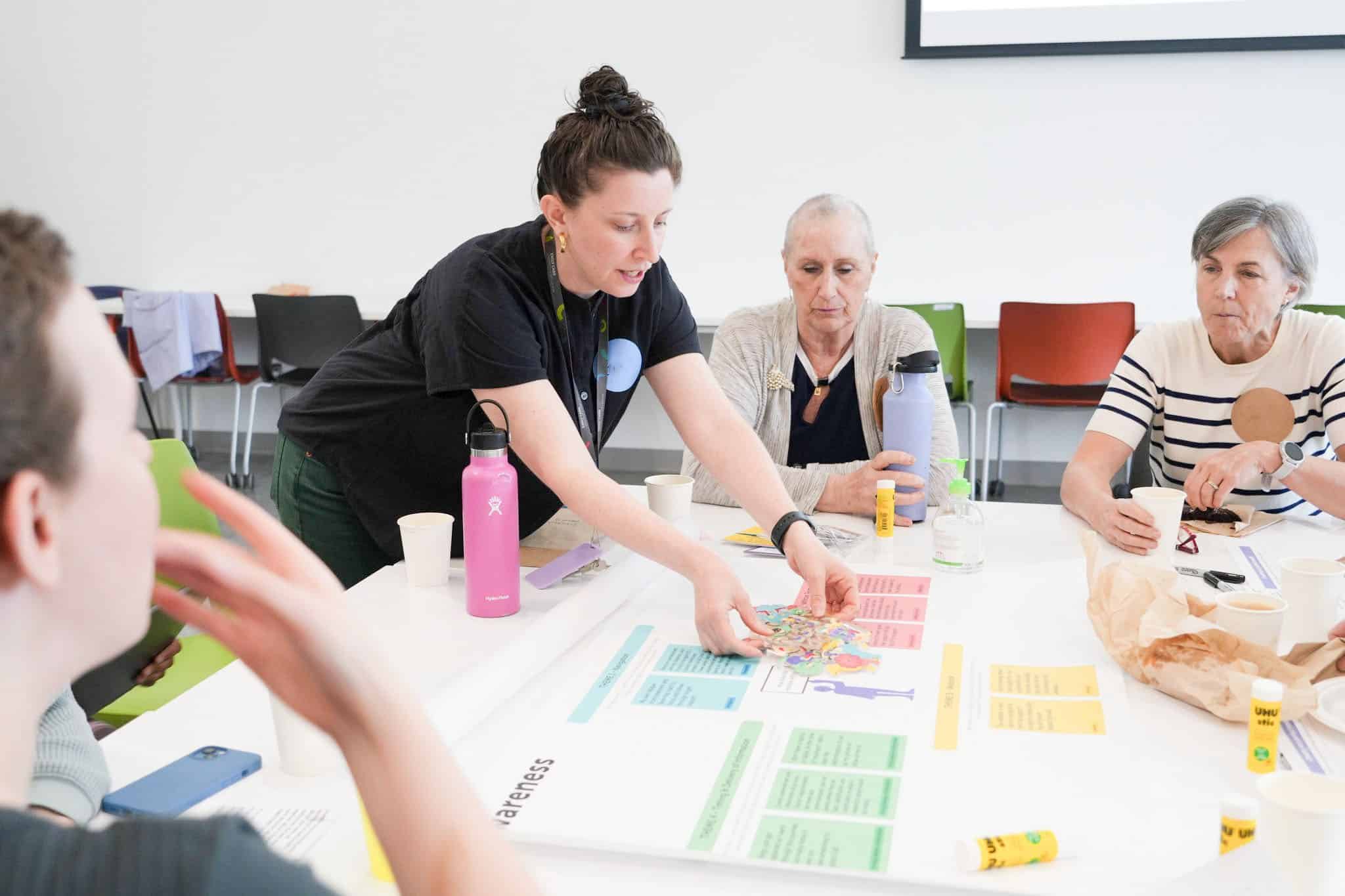The ongoing project empowers people with lived experience of cancer treatment to help shape the future of the resources they rely on.
An ongoing project from the Health Design Lab (HDL) at Emily Carr University of Art + Design (ECU) aims to improve access and awareness of BC Cancer’s Supportive Care Services for patients and their families.
Expanding Awareness and Access to Supportive Care brings together HDL researchers and student research assistants (RAs) with BC Cancer staff and patient advisors to co-design participatory design research activities.
The goal is empowering people with lived experience of cancer treatment to identify how BC Cancer can improve the accessibility of services such as patient and family counselling, pain and symptom management, and vocational rehabilitation.
“When we look at the data, one of the key themes we see is that patients and families really value supportive care services but often don’t know what’s available and how to access them,” says Tammy Hoefer, director of Patient & Family Partnerships and Experience at BC Cancer. “Including patients and families in helping us design these services makes for more relevant, impactful and human-centred outcomes.”
“Supportive care focuses on treating the person rather than the disease,” adds Dr. Jonathan Avery, provincial programs manager with Supportive Care, BC Cancer. “So, it’s essential to understand the patient’s experience — not only regarding supportive care, but also regarding the impact of cancer on their lives and on the things that are most meaningful to them.”

Expanding Awareness includes engagement activities such as a province-wide survey and a series of co-design workshops. By working directly with patients and their families, the project will produce recommendations that reflect their needs. Including staff in the process also captures frontline knowledge of service delivery.
The insights generated during these sessions will help inform BC Cancer planning and strengthen the foundation for ongoing, meaningful patient and family involvement in shaping the future of supportive care.
“This partnership demonstrates the role the HDL can play in supporting inclusion of people with lived experience in large organizational initiatives such as service design and strategic planning,” HDL director Caylee Raber.
“Our team is always mindful of ensuring we create actionable insights from the truly thoughtful things we hear from participants in projects like this one. And then for students, the impact of HDL can be twofold: through the RA position itself and through access to networks and professional opportunities they can foster and develop.”

Master of Design student and project RA Srividya Suryanarayan had previous experience as a graphic and communication designer in India. Prior to coming to ECU, she’d begun exploring work outside traditional commercial venues, including with nonprofits. She says the opportunity to work with the HDL was a key reason for choosing ECU for her master’s degree.
“When you hear the stories of participants, everything feels more rewarding — like the work you’ve done has a place and a purpose. As an international student, getting to know people and understanding how things work here has been another key learning for me,” she says, adding Expanding Awareness has profoundly shaped her work as an emerging designer.
“My master’s studies have become defined by my work with the HDL. I feel very inspired, and it’s become a part of my thesis work. Now, when I talk about my experience at ECU, I will talk about HDL automatically.”

Jonathan suggests Srividya’s experience reflects the broader aims of both supportive care and participatory design.
“Supportive care is more than doctors working with patients, it’s about people building relationships with people,” he says.
“Likewise, the beauty of participatory design is how it empowers people from all different experiences to contribute in an equitable way and ensures every voice is heard. We all hold expertise in different areas, and when we come together and partner — all of us sharing and bringing that expertise to the table — we create something better and stronger.”
Visit BC Cancer’s website to learn more Supportive Care services.
Visit the HDL’s website to learn more about the Expanding Awareness and Access to Supportive Care project and follow them on Instagram to keep up with their ongoing initiatives.
More about the Master of Design Program at ECU
We seek designers who aspire to create experiences and transformations locally and globally. Root yourself in our campus community while building connections with industry. Our two-year Master of Design degree program is built on critical, practice-based creative research. Faculty, staff and peers will be with you every step of the way, mentoring, challenging and supporting you.
Visit our website to learn more.
Get more stories like this delivered to your inbox twice a month!
Subscribe to our FREE Emix newsletter today!
